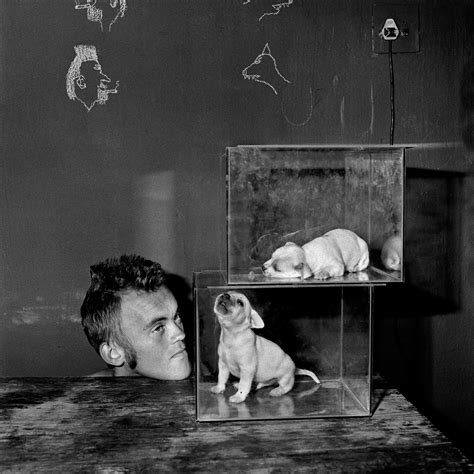A Quote by Jamaica Kincaid
It's very funny, American society: White culture can do all sorts of things and get away with it, but the minute a black person does it, it's interpreted in some way.
Related Quotes
I did not disregard my culture, if I did, it was the white American culture, and I accepted my true culture, when I accepted Mohammed Ali, because this is a black name, Islam is the black man's religion, and so I would like to say, that I would like to clarify that point that I reclaimed my real culture, and that's being a black man and wearing a black name with a black body, and not a white name, so I would never say that I didn't disown my culture.
But you see, our society is still trapped in this binary, black/white logic and that has had some very positive implications for our generation. It's had some very negative ones as well and one of the negative ones is that it creates enormous identity problems for people who have one black ancestor and all white ancestors for example.
Everyone else can do violence. You know, Clint Eastwood, Sylvester Stallone, they can all do shoot-'em-ups. Arnold Schwarzenegger can kill 10 people in one minute, and they don't call it "white exploitation." They win awards and get into all the magazines. But if black people do it, suddenly it's different than if a white person does it. People respond differently because people come from different places.
As for the Jewish-American question, what's funny is that I grew up in India, and the Jewish-American comparison is better for second-generation Asians. I'm sure there's something about globalization that has globalized our neuroses, so that I, growing up in India, somehow turned out very similar to you. It's a weird thing, when you think about it, but everyone now is exposed to a mainstream white American world, wherever you are. And so there's this need to belong or measure yourself up to that white world, which leads to all sorts of straining.
The black masses want not to be shrunk from as though they are plague-ridden. They want not to be walled up in slums, in the ghettos, like animals. They want to live in an open, free society where they can walk with their heads up, like men, and women! Few white people realize that many black people today dislike and avoid spending more time than they must about white people. This 'integration' image, as it is popularly interpreted, has millions of vain, self-exalted white people convinced that black people want to sleep in bed with them - and that's a lie!
In a way, 'Sin City's designed to be paced somewhere between an American comic book and Japanese manga. Working in black and white, I realized that the eye is less patient, and you have to make your point, and sometimes repeat it. Slowing things down is harder in black and white, because there isn't as much for the eye to enjoy.
In a way, 'Sin City''s designed to be paced somewhere between an American comic book and Japanese manga. Working in black and white, I realized that the eye is less patient, and you have to make your point, and sometimes repeat it. Slowing things down is harder in black and white, because there isn't as much for the eye to enjoy.
There's some homophobia within black community, but there's some strong homophobia throughout the whole of American society as well, particularly throughout the South to a degree, whether white or black. And since many of us migrated from the South, that could be a strong connection along those lines.
The white American man makes the white American woman maybe not superfluous but just a little kind of decoration. Not really important to turning around the wheels of the state. Well the black American woman has never been able to feel that way. No black American man at any time in our history in the United States has been able to feel that he didn't need that black woman right against him, shoulder to shoulder-in that cotton field, on the auction block, in the ghetto, wherever.






































